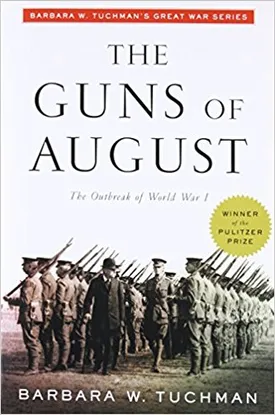Barbara W. Tuchman
Barbara W. Tuchman (1912–1989) was an acclaimed American historian and author who wrote extensively about the events of the twentieth century, specifically World War I and World War II. Born in New York City in 1912, Tuchman was the eldest child of banker Maurice Wertheim and literary editor, Alma Morgenthau.
Tuchman attended the prestigious Walden School, where she received an excellent education. She received her B.A. degree in 1933 from Radcliffe College and then completed her Master’s Degree in 1934 from Radcliffe as well. She went to work at a publisher, and over the next few years, she wrote several books of a commercial nature, including a collection of short stories.
Tuchman’s true passion, however, lay in history and she began to focus on writing histories. Her first history book was The Lost British Policy: Britain and Spain Since 1700, published in 1938. This was followed by Bible and Sword: England and Palestine from the Bronze Age to Balfour in 1956.
Her works were almost exclusively focused on Europe and especially Germany, who was highly influential in the events of World War I. The Guns of August (1962) and The Proud Tower (1966) are two of Tuchman’s best known works of history. Both of these works detail events leading up to and during World War I.
The Guns of August was the first book to receive a Pulitzer Prize in the history category. It focused on the events of the first month of fighting during World War I as Germany marched through Belgium and France. Tuchman wrote the book to detail how Europe’s political structure caused such a massive conflict and devastation.
The Proud Tower is another of Tuchman’s most acclaimed works. This book details the events and social changes that occurred during the years prior to World War I in Europe. It includes accounts from the viewpoints of different classes and cultures from around the world and tries to look at both history and the events leading up to the war in a more impartial way.
Tuchman wrote several other books about World War II and the decades following, including Stilwell and the American Experience in China (1971) and A Distant Mirror (1978). In A Distant Mirror, Tuchman focuses mainly on the world of the 14th century rather than World War II, trying to understand how people responded to a different set of events during a different time period.
Tuchman also wrote several shorter works, including Practicing History: Selected Essays (1981) and a collection of short stories called The Missionary and Other Stories (1981). In her essays, Tuchman tackled subjects such as the then-controversial Vietnam War, as well as the effects of technology (from airplanes to nuclear weapons) on modern life.
Tuchman was an influential historian and her work is still highly regarded today. By providing information from multiple perspectives and with her trademark focus on detail, Tuchman captured events from the World Wars and beyond in a way that has allowed many generations to learn from and remember them.

